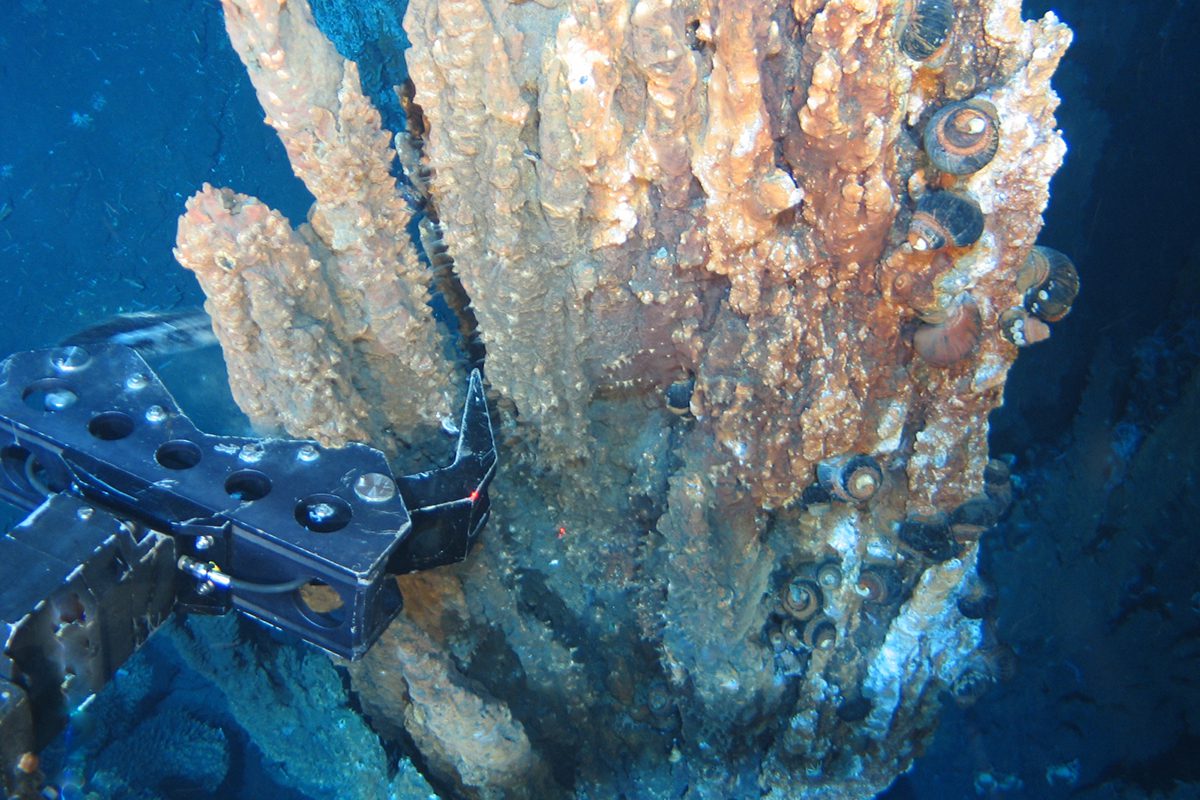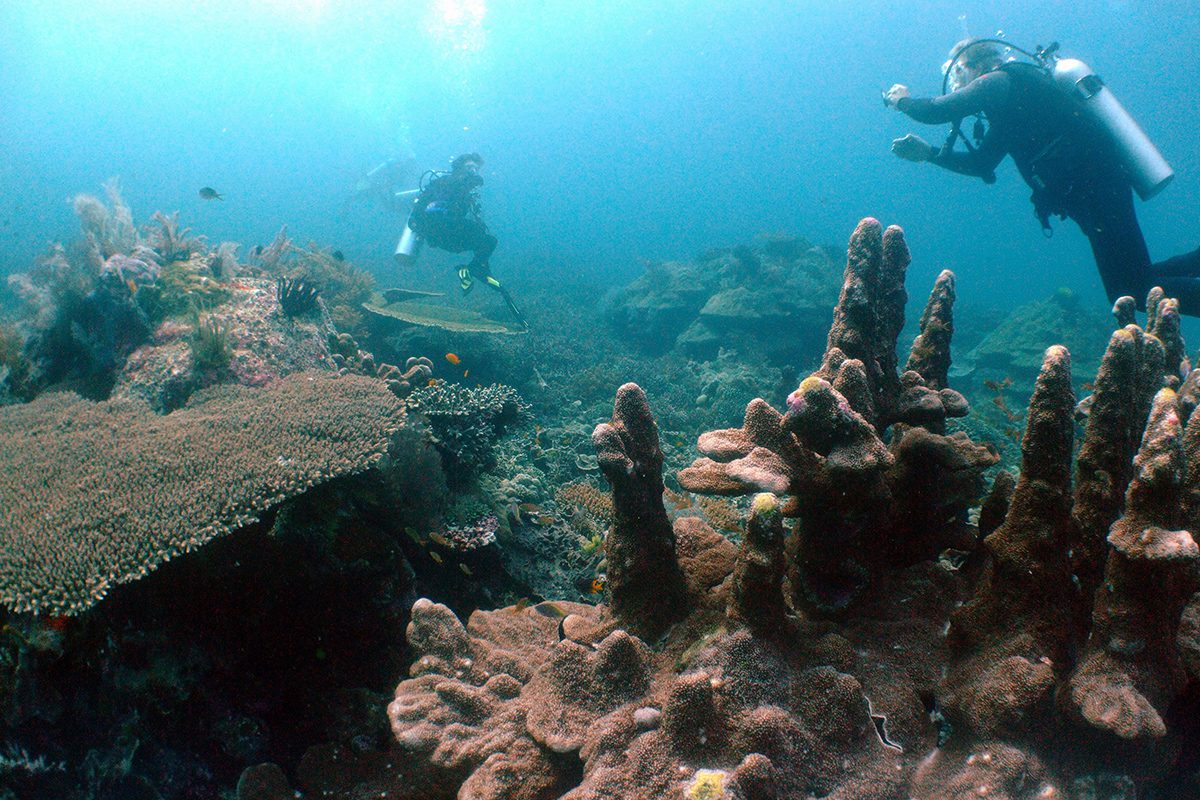
Deep-sea mining ‘precautionary pause’ and closure of one-third of the ocean among eight urgent measures needed in the next decade to preserve life-supporting ocean function
Ocean heating 40% faster than even recently predicted – ratchet effects of some changes could be ‘irreversible’
A new scientific paper says eight urgent, simultaneous actions are needed to head off potential ecological disaster in the global ocean, amid signs of steeper and faster changes than even recent models predicted.
Experts convened by the International Programme on the State of the Ocean (IPSO) warn that failure to take action in the next ten years to halt damage caused by unprecedented rates of climate heating and other human activities could result in catastrophic changes in the functioning of the global ocean, threatening vital ecosystems and disrupting human civilisation.
The paper says: “We are witnessing an increase in ocean heat, disturbance, acidification, bio-invasions and nutrients, and reducing oxygen. Several of these act like ratchets: once detrimental or negative changes have occurred, they may lock in place and may not be reversible, especially at gross ecological and ocean process scales.”
The multi-disciplinary team of marine scientists and experts in law, policy and finance, reviewed and synthesised the findings of 131 peer-reviewed scientific papers on ocean change (120 from the past 5 years) in order to assess changes occurring and the consequences of inaction.
The resulting assessment, published on 24 July in Aquatic Conservation, says diminished marine food-chain production, reduced ability to store carbon, sinking oxygen levels and the possible release of stored heat back in to the atmosphere are among a slew of changes, either underway or evidenced as possible, in a global ocean under mass assault from human activity.
The IPSO Viewpoint Paper identifies eight priority actions needed in unison to avert worst-case scenarios for the ocean including potentially irreversible change.
Climate breakdown impacts in the ocean are described as ‘pervasive and accelerating, and the pre-eminent factor driving change in the ocean. The highest priority remains to rigorously address global heating and limit surface temperature rise to 1.5°C by 2100. However, measures should be implemented to prepare for a 2-3oC temperature rise.
The call for a precautionary moratorium on deep-sea mining comes as the International Seabed Authority holds its annual meeting amid mounting concern that mining activity could disrupt carbon stores in seafloor sediments, reducing the ocean’s ability to absorb carbon dioxide and mitigate the effects of the climate emergency. 29 exploration licences have been granted so far and the area of commercial interest for mining activity is estimated at over 4 million km2, larger than the total landmass of the top 20 EU countries.
The other priorities are urgently to:
● secure a robust, comprehensive High Seas Treaty with a Conference of Parties and a Scientific Committee; and reformed voting rights on bodies such as the International Seabed Authority to stop vested interests undermining the precautionary approach.
● enforce existing standards for effective marine protected areas (MPAs), and in particular fully-protected marine reserves, and extend their scope to fully protect at least 30% of the ocean, including representation of all habitats and the high seas, while ensuring effective management to prevent significant adverse effects for 100% of the rest of the ocean;
● end overfishing and destructive practices including illegal, unreported and unregulated (IUU) fishing;
● radically reduce marine water pollution, including nitrogen fertilisers and sewage as well as plastics;
● provide a financing mechanism for ocean management and protection; and tax unsustainable activities to remove costs to the global commons and fund innovation and adaptation;
● scale-up scientific research on the ocean and increase transparency and accessibility of ocean data from all sources (i.e. science, government, industry). Increasing the understanding of heat absorption and heat release from the sea to the atmosphere should be a research priority. The UN Decade of Ocean Science beginning in 2021 is a key opportunity to achieve this step change.
The IPSO paper highlights a number of worrying trends emerging from the latest scientific research which indicate ocean change is occurring at a much faster and deeper rate than projected. These include the facts that:
● ocean warming is accelerating, heating up 40 per cent faster on average than a United Nations panel estimated five years ago;
● upper-ocean warming, a consequence of anthropogenic global warming, is changing the global wave climate, making waves stronger;
● There are signs that the ocean might be starting to release some of that stored thermal energy which could contribute to significant global temperature increases in the coming years;
● an alarming trend of declining oxygen levels in the ocean which combined with chemical pollutants is turning huge areas hypoxic or anoxic.
● Arctic and Antarctic ice is melting faster than scientists anticipated, and the subsequent sea-level rise bringing catastrophic consequences for cities around the world.

The IPSO paper comes ahead of IPCC’s first ever report solely focused on the state of the ocean and cryosphere due in September 2019, and a UN Climate COP in December expected to focus on the importance of the ocean within the climate emergency.
Lead Author Professor Dan Laffoley of the International Union for Conservation of Nature (IUCN) said: “Marine life is threatened with suffocation, starvation, overheating and acid corrosion under current climate impacts. The situation is only getting worse. We need to act on climate change but also, urgently build resilience. All life on Earth is at risk from ocean collapse. This paper sets out eight practical, but ambitious steps that need to be implemented simultaneously in order to help prevent that. “
Co-author Professor Callum Roberts of York University said:” We have about 10 years to act. Tipping points in ocean decline are now significantly more likely to happen if action is not taken now, and there is a great opportunity to make this happen. The Paris Climate Agreement comes into force in 2020 with its implementation plan, negotiations for the UN Treaty on biodiversity protection beyond national jurisdiction are scheduled to be completed by 2020, and an ocean Sustainable Development Goal has targets that are to be delivered by 2020. Properly implementing these policy opportunities and bringing these global efforts together must bear fruit.”







